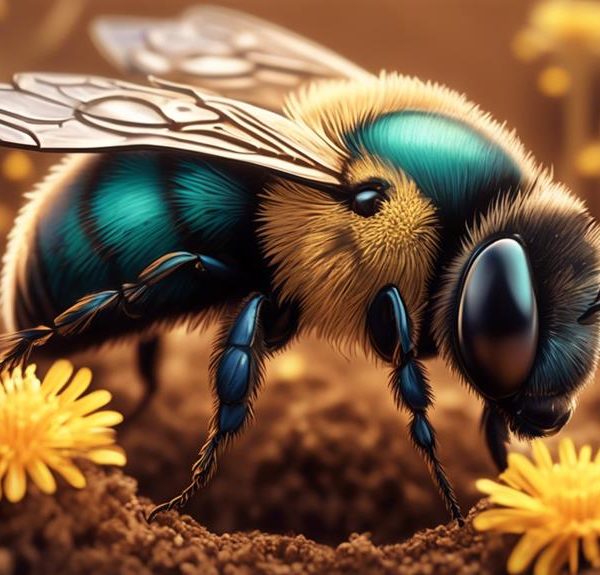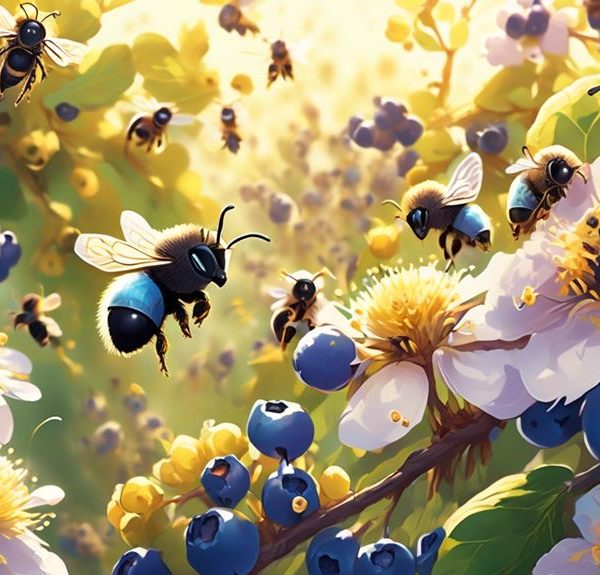Learn about the fascinating relationship between mason bees and apple tree pollination in this insightful exploration.
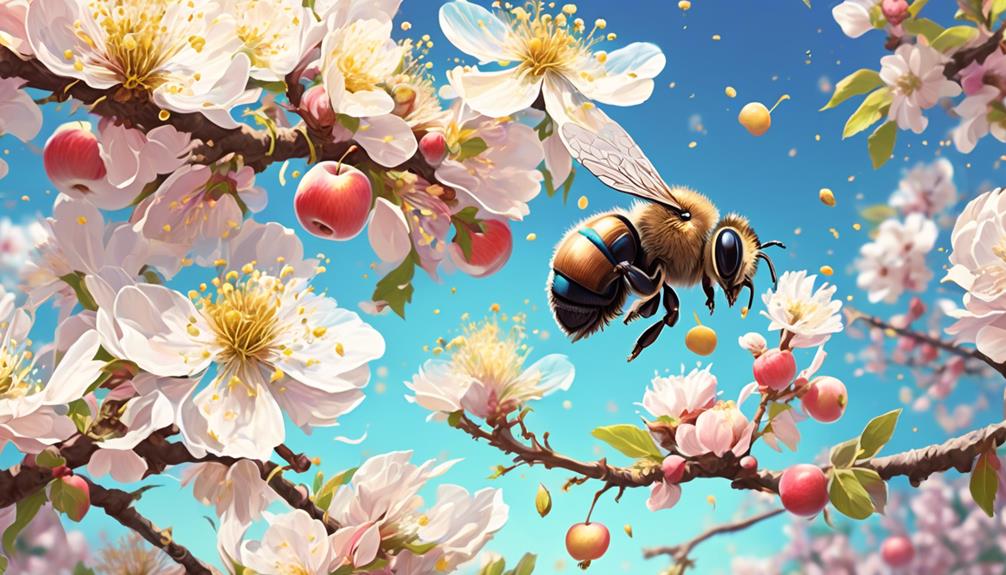
Do Mason Bees Pollinate Apple Trees?
Have you ever wondered if it's true that mason bees pollinate apple trees? You're not alone in this curiosity.
Mason bees, known for their solitary nature and non-aggressive behavior, are highly beneficial for the environment and play a crucial role in pollination.
But when it comes to apple trees, the answer might not be as straightforward as you'd think. To fully grasp the relationship between these industrious insects and your favorite fruit's growth, it's essential to explore the intricacies of their interaction.
So, why not stick around to uncover the intriguing saga of mason bees and apple trees?
Key Takeaways
- Mason bees are highly effective pollinators for apple trees, more efficient than honey bees.
- Incorporating mason bees into orchards can enhance apple yield as they ensure higher fruit set through efficient pollen transfer.
- Mason bees are hardy in colder climates, making them ideal for apple tree pollination during their blooming period.
- To encourage mason bee populations, provide suitable nesting sites like bee houses, plant native wildflowers, and avoid pesticides.
Understanding Mason Bees
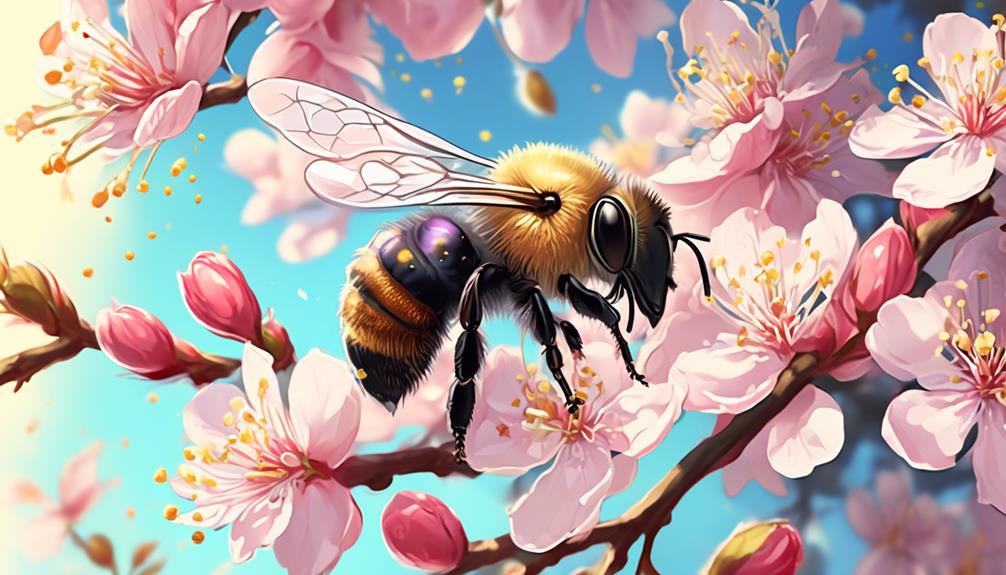
To fully appreciate the role of mason bees in apple tree pollination, it's crucial to delve into their unique characteristics and life cycle. Unlike honeybees, mason bees are solitary creatures. Each female is fertile and constructs her own nest, typically in hollow reeds or holes in wood, using mud to seal the compartments, hence their name.
You'll find mason bees have a short but busy life. They emerge in spring, mate, and then the female starts constructing nests. She lays an egg in each cell, provisioning it with pollen and nectar for the larva to feed on. Once her job's done, she seals the cell with mud and moves on to the next one. By summer, the adult dies off, but her offspring, safely encased in their cells, are developing into the next generation.
Their solitary nature and life cycle make mason bees extremely efficient pollinators. They're more active in cooler temperatures than honeybees, and whereas honeybees gather nectar, mason bees are pollen gatherers – making them perfect for apple tree pollination. Understanding these characteristics gives you a fresh perspective on their pivotal role in our ecosystems.
Importance of Pollination
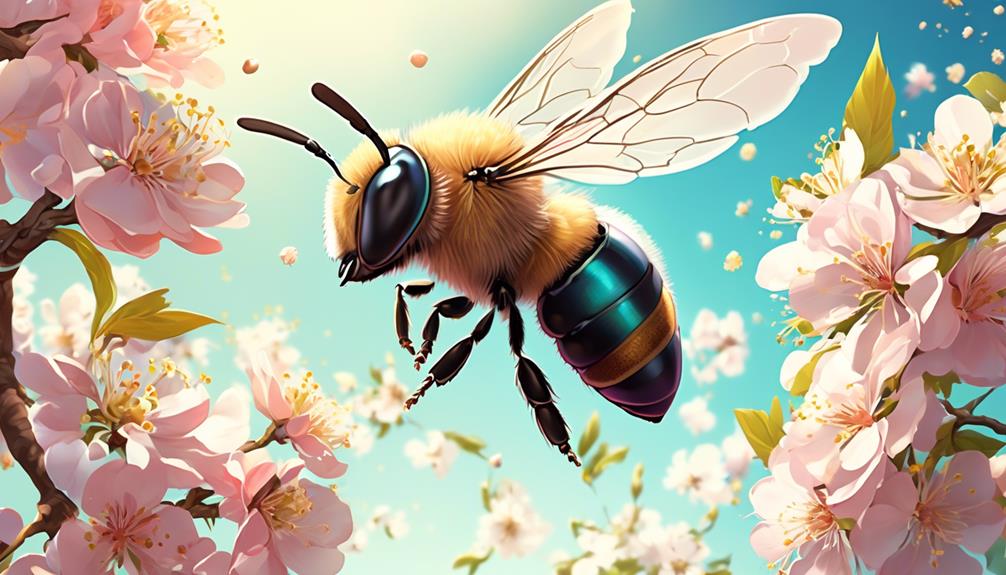
Understanding the importance of pollination, you'll find it's a vital process in the life cycle of flowering plants, including apple trees. It's the mechanism by which plants reproduce, with pollen grains transferred from anthers (male part) to stigma (female part). This fertilization process results in the formation of fruits and seeds. Without effective pollination, apple trees won't produce a bountiful harvest.
Consider the table below:
Pollination Process | Impact |
|---|---|
Successful pollination | Results in good fruit set and yield |
Partial pollination | Leads to poor fruit set, quality and yield |
No pollination | No fruit formation occurs, affecting food chains |
In the ecosystem, pollination plays a critical role in maintaining biodiversity. It ensures the survival of various plant species, thereby providing food and habitat for different animals. For humans, it's crucial for food security, as many of our food crops are pollinated by insects, including mason bees. Recognizing the importance of pollination, you'll appreciate the indispensable role that these tiny creatures play in our lives and the environment.
Mason Bees and Apple Trees
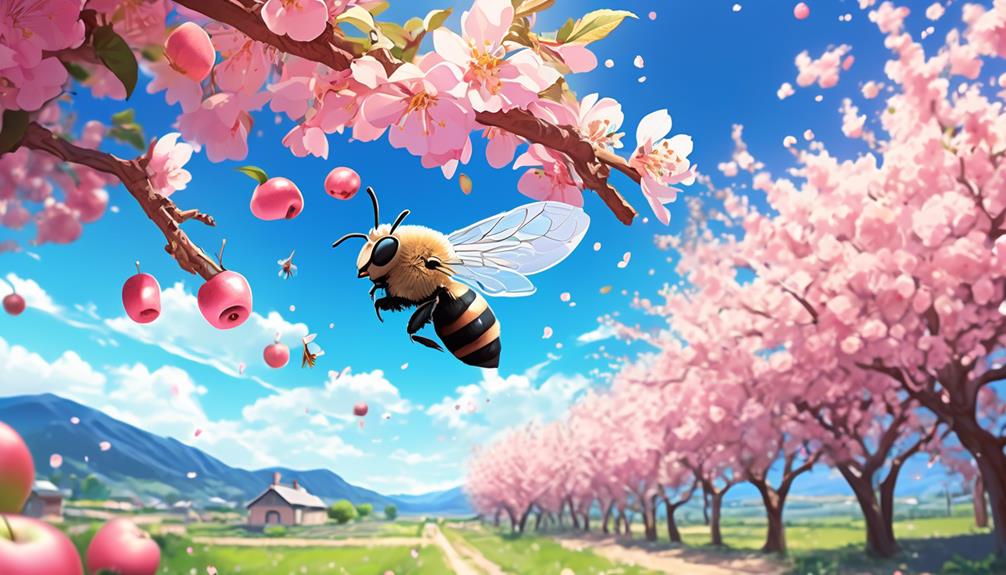
Having underscored the significance of pollination, let's now explore how mason bees specifically contribute to apple tree pollination, enhancing fruit set and yield.
Mason bees, unlike honey bees, are solitary creatures. They're highly effective pollinators, with one mason bee doing the work of a hundred honey bees. That's quite a workforce, isn't it?
The reason they're so efficient lies in their pollen-collecting habits. While honey bees neatly pack pollen onto their hind legs, mason bees are less meticulous, allowing pollen to stick to their fuzzy abdomens. This seemingly messy method actually results in more frequent and efficient cross-pollination as they move between flowers.
Further, mason bees are early risers, and they're active in cooler temperatures. This aligns perfectly with apple tree's blooming period. So, while other bees are still tucked away, mason bees are busy at work, making them ideal pollinators for your apple trees.
Boosting Apple Production
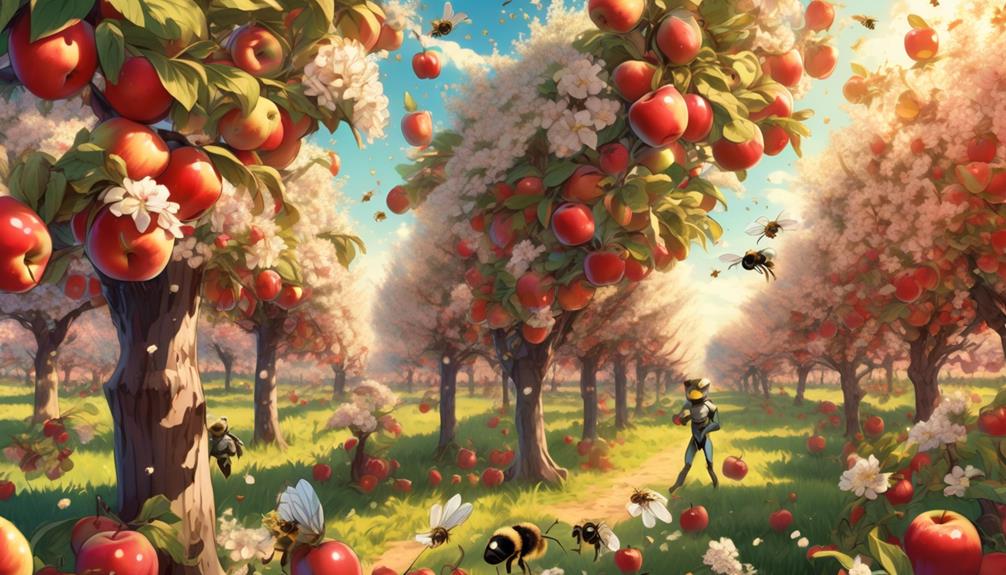
If you're looking to enhance your apple yield, incorporating mason bees into your orchard could be a game-changing strategy. Unlike honeybees, which are typically used for pollination, mason bees are solitary creatures. They don't live in hives, and therefore, they don't have honey or a queen to protect. This means they're less aggressive and more focused on pollination.
Scientifically, mason bees are known to be prolific pollinators. A single mason bee can do the same amount of work as 100 honeybees. They're extremely effective at transferring pollen between flowers, thereby ensuring higher fruit set. This efficiency, coupled with their hardiness in colder climates, makes them an ideal choice for apple tree pollination.
But how do you attract these industrious insects? Planting native wildflowers and providing suitable nesting sites can be effective. You can also buy mason bee cocoons and houses to kick-start their integration into your orchard. Be sure to avoid pesticides, as these can deter or harm mason bees.
Encouraging Mason Bee Populations
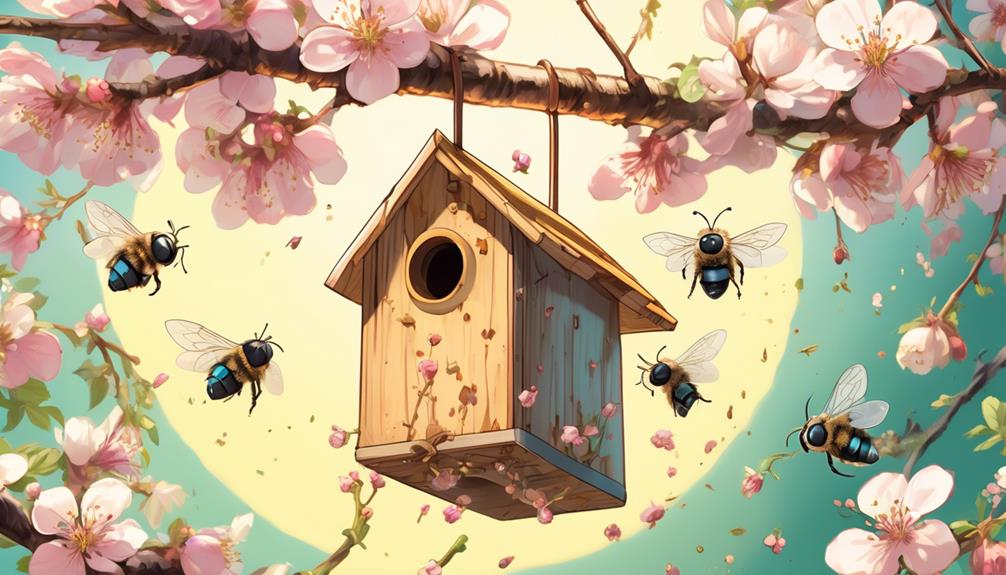
To maximize your apple yield, it's crucial to foster a healthy mason bee population in your orchard. These diligent workers are superior pollinators and can significantly bolster your apple production. But how do you encourage their colonies?
First, understanding mason bees' nesting habits is key. Unlike honeybees that live in hives, mason bees are solitary and prefer individual nesting sites. You can offer them a suitable habitat by setting up bee houses. These are often wooden contraptions with many small holes drilled into them, mimicking the bees' natural nesting sites.
Next, ensure a pesticide-free environment. Chemicals can harm these beneficial insects, reducing their numbers and, consequently, their pollination effectiveness. Instead, use organic pest control methods to maintain a healthy ecosystem.
Conclusion
Yes, you've got it right. Mason bees do pollinate apple trees, playing a crucial role in apple production.
By encouraging Mason bee populations, you're not only boosting your apple yield but also promoting biodiversity.
Remember, these little pollinators are vital to our ecosystem. So, next time you bite into a juicy apple, thank a Mason bee for its diligent work.

